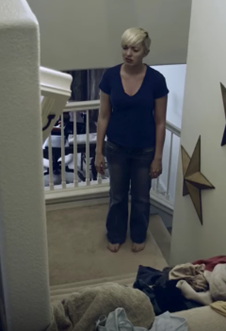Jack Fate thought he was probably depressed in high school, though he wasn’t formally diagnosed by a doctor. But in February of his freshman year at the University of Minnesota, a combination of a break-up, school stress and being away from his support system all ended up boiling over.
a break-up, school stress and being away from his support system all ended up boiling over.
Fate felt suicidal, and he had a backdrop to go with his thoughts. He crossed the Washington Avenue bridge over the Mississippi River connecting the campus.
“There were days when I could not get the image of throwing myself from that bridge out of my head,” Fate said. “And I shared that with my friend, and that scared her sufficiently to [say], ‘let’s get you to the doctor.”
His friend and the CA (community adviser) took him to the ER. He was almost going to be released back home, but Fate’s friend then told the doctor that his leaving wasn’t a good idea because he talked about killing himself.
“That made me really mad,” Fate said. “I think I realized the jig was up. It was definitely ripping a Band-Aid off.”
He was committed to a 72-hour mental health hold, “which sucked.” He stayed a total of five days, started medication to regulate his sleep and set up doctor appointments to help him. It was a time that was frustrating and difficult, topped with him being mad at his friends at the time. But his tune soon changed.
“I look back on it and think that that is one of the most important things that has ever happened in my life,” Fate said.
He realized a couple months later how much of a good thing it was for his friends to step in and help him address his mental health issues.
One-in-five people live with a mental health condition. One of the important things to remember is that it’s OK and not at all a sign of weakness to ask for help regarding mental health problems are they develop or hinder daily life.
When helping friends try to address mental health issues, Fate suggests being honest and supportive. If you see something in a friend, don’t minimize the situation or try to explain their behavior away, Fate said.
“Just be supportive, but be honest in such a way that if you are being supportive to your friend and you realize they need more than just a really good friend,” Fate said. “Having the honesty to tell them, ‘hey, we’ve got to go get you some professional help.’
“It’s too hard to do this alone.”
That’s what Fate’s friends did for him. They recognized something was not OK with him, were honest and then forced him to realize the truth about his depression.
Fate also did not hide the fact that he was hospitalized for depression. He told his friends to be honest and clear with others who asked about him when he was placed on the hold. It turned out that afterward, he heard from many others who were dealing with mental health issues, too. Fate knows the phrase, “you’re not alone” is pretty cliché, but it’s also “embarrassingly true.”
“I had so many people come up to me and ask, ‘hey, … my friend is like this,’ or ‘I’ve been feeling kind of down lately. Do you think I should go talk to somebody?’” Fate said.
There’s still often a stigma attached to mental health issues, but so many more people struggle with something than people realize, Fate said.
Fate earned his degree in political science. Though he said his issues aren’t something you overcome all the way, it’s something you learn to live with going forward. He’s not depressed all the time, though he said February is usually a tough month for him. He’s matured to the point where he’s learned to accept this as part of his life. He does not take medication for his depression anymore but leans heavily on his support network, including his roommates, some who are dealing with their own mental health issues.
“I think I’m just more comfortable with the way it feels to be a depressed person,” Fate said.
